AUKUS and The Path Towards an Anglosphere Bloc
In 2023, the international order seems completely up-ended. Moscow has reverted to imperialism with its invasion of Ukraine, China’s regime is unrelenting in its designs towards Taiwan and Iran is edging closer to acquiring a nuclear weapon. Three decades on since the end of the Cold War and it would seem that Western intentions for a peaceful world now lie in tatters.
Yet we Westerners face our own set of problems. The UK remains more or less directionless on the world stage, its economy and reputation in freefall. On the continent, Hungary and Poland seem determined to stall EU centralisation efforts and the once ironclad relationship between Paris and Berlin appears to be weakening. Meanwhile, the US is mired in a state of total electoral chaos that one would normally associate with a banana republic. Perhaps the next leader of the free world will be running the show from a prison cell. At this point, who really knows?
Recent years have seen the UK, like the US, be radically transformed into a viscerally divided country. Although the polls seemingly indicate a majority now regret Brexit and would seek to reverse it, little thought has been given to how willing the British public would be to adopt the Euro or join Schengen – both of which Brussels would force upon us if we were to rejoin. Yet staunch Brexiteers haven’t exactly had much to offer us either. Since leaving, we’ve just about managed to re-secure the existing trade agreements we already had as an EU member and have joined the Comprehensive and Progressive Agreement for Trans-Pacific Partnership (CPTPP) – which is predicted to grow the UK economy by just 0.08% over the next decade. Evidently, any future success we will enjoy as an isolated, declining power remains very unclear.
What is clear though is that the UK desperately needs bolder vision if it wants to drag itself out of the quagmire it is currently sinking into. It needs a new, invigorating national project that can unite its splintered political factions and galvanise support towards a stronger future. The UK has just exited one of the most successful blocs the world has seen, yet it may have already joined an even greater one – AUKUS.
AUKUS – an acronym of its member countries of Australia, the UK and the US – was formed in 2021 to act as a deterrent to Chinese aggression in the Indo-Pacific. As a military pact, its initial moves have been to assist Australia’s acquisition of nuclear-powered submarines as well as to step up information sharing on AI, quantum and hypersonic technologies.
Although originally hesitant about joining, New Zealand’s government has now expressed interest in becoming AUKUS’s fourth member, with Canada quickly following suit. The addition of these countries makes sense given that both have economic and geopolitical interests in the Pacific and equally view China as a threat. Furthermore, being members of the ‘Five-Eyes’ intelligence pact, neither would seek being shut out of any agreements involving information sharing.
However, their compatibility with AUKUS goes beyond military and security concerns. With a shared democratic ethos and a common system of governance, AUKUS represents not just a strategic pact, but also a values-based alliance uniting all of its members, including potential additions Canada and New Zealand. As such, the potential for AUKUS to welcome even broader collaboration seems apparent already.
Proposals for stronger ties between the five countries are nothing new. By far the most popular concept to be imagined has been ‘CANZUK’. Yet another acronym for its member states, this would involve a hypothetical trade and cooperation bloc comprising all aforementioned countries – with the notable exception of the US. Focusing strictly on expanding economic, security and foreign-policy collaboration, its proponents dismiss the idea of any political union. Crucially, free movement would be implemented, however – just not the kind we associate with Schengen. For it would bar anyone with a criminal record, an infectious disease or those considered to be a national security risk.
Its advocates certainly sell the CANZUK vision well. As they point out, with a population of at least 135 million and a combined GDP of over $6 trillion, CANZUK would be among the top four economic powers in the world. It would comprise an area of 18,187,210 km, making it larger than the Russian Federation. Moreover, with similar levels of development, the potential for the kind of one-sided migration occurring between poorer and affluent member states, as witnessed in the EU, would be minimised. It also helps that free-movement treaties are already in effect between some of these countries – notably the Trans-Tasman Travel Arrangement (TTTA) between Australia and New Zealand.
Yet for all its great potential, proponents have glossed over one major problem – trade. Whilst these countries combined make up a significant chunk of the global economy, commerce among them is minimal. As of last year, the UK was New Zealand’s ninth largest trading partner, Canada’s fifth and Australia’s eighteenth. Similarly, Canada ranks low on trade with Australia and New Zealand and vice versa. However, what they each have in common are strong trade links with the US – ranking anywhere from first to third largest trading partner among them. For this reason alone, an Anglosphere bloc without the US does not make sense economically.
This takes us neatly back to AUKUS – or more precisely, the need for its evolution. Embracing the aforementioned ideals of economic integration, foreign-policy coordination and the establishment of a common travel area would undoubtedly turbocharge AUKUS’s power and completely reshape global politics. The addition of Canada and New Zealand into the mix certainly aids this. AUKUS has already shown it is prepared to respond to a crisis, namely China. The looming threat of a Chinese-dominated century being the driving force behind a gradual transformation of AUKUS into an Anglosphere bloc should not be underestimated. Beijing’s potential to start to outpace the West economically, technologically and even militarily would naturally bring Australia, the UK, the US, Canada and New Zealand into each other’s arms.
Washington’s involvement would be vital for many reasons, including reducing the group’s dependency on trade with China, something that Australia has already declared it seeks to implement. Yet whilst the need for closer cooperation with a behemoth like the US is clear, it would be naïve to suggest that the US could afford to forgo such an arrangement. Indeed, the US needs the Anglosphere now more than ever. The initial reluctance of NATO members France and Germany to step up their support towards Ukraine and Macron’s comments about the EU distancing itself from American policy on China raises big concerns about Europe’s ability to commit to enforcing global security.
The EU itself is riddled by infighting over immigration, enlargement and the contentious issue of ‘ever-closer union’, casting doubt on its survivability. In short, America cannot rely on Europe in the long-term. The EU’s lethargic reaction to the Ukraine crisis underlines this. With multiple, often clashing, foreign-policy objectives among its member states, the prospect of a united Europe, ready to take on the geopolitical challenges of the 21st century, looks remote. If it took the continent as long as it did to pull together and reinforce its eastern frontier against invasion from its most immediate adversary, Russia, then little hope can be expected from future interventions either.
Contrast this with the response from the UK and the US. Both were quick to provide Ukraine with military support, whilst France and Germany sat back and hoped a diplomatic solution would prevail. For Berlin and Paris, their economic ties with Moscow greatly weakened their resolve for a more direct response, to the ire of the Anglosphere as well as fellow EU member Poland. The US, like the UK, now has to accept that its partners on the European continent do not always share its economic or geopolitical interests, nor are they fully capable of putting theirs aside for a common cause. Again, this further highlights the necessity of AUKUS for the US – and in many ways, it renders its expansion into an official bloc more of an inevitability than a hypothetical concept.
For the UK, the conclusion is self-evident. AUKUS is the only realistic option on the table for a directionless UK left out in the global cold. The alliance will continue to be crucial for the UK given our post-Brexit pivot to the Indo-Pacific. But the UK must push for something much larger than a military pact if it hopes to remain relevant in the 21st century. It must call for AUKUS’s expansion into a fully-fledged trade and cooperation bloc, encompassing the totality of the Anglosphere. There may well be push-back and the notion that this could happen overnight would be folly. Nevertheless, the UK will need to start somewhere if it wishes to shake off the Brexit blues. It must step up and begin to take charge of its destiny.
Dreams of a return to the EU are just that – dreams. The mere political unpalatability of having to surrender our currency and control over our borders makes a return to the EU simply incompatible with most British voters. There would be no chance of a rebate over the UK’s financial contributions either. We would need to be all in, or stay out. Nor should we presume that Brussels will be eager to welcome back a country that so openly defied it, for fear of sparking similar exits. We could expect similar reactions from member states such as France, which twice vetoed the UK’s application to join back in the 1960s, as well as Spain, which would no doubt force us into concessions on Gibraltar. The UK must now accept this new relationship with the continent and simply move on.
AUKUS provides the UK with a chance to reinvent its beleaguered image, both at home and abroad. It paves a way out of the tangled forest of confusion and division over our place in the world and heralds a return to a more optimistic and confident UK. The economic benefits it would bring, combined with the chance to rekindle ties with Australia, Canada and New Zealand, and repair our fractured ‘special relationship’ with the US, make it simply too good an opportunity to pass up.
With the EU, Russia and China now having all put their cards on the table, the need for an official Anglosphere bloc has never been more immediate. All that is missing now is the willpower to make it happen.


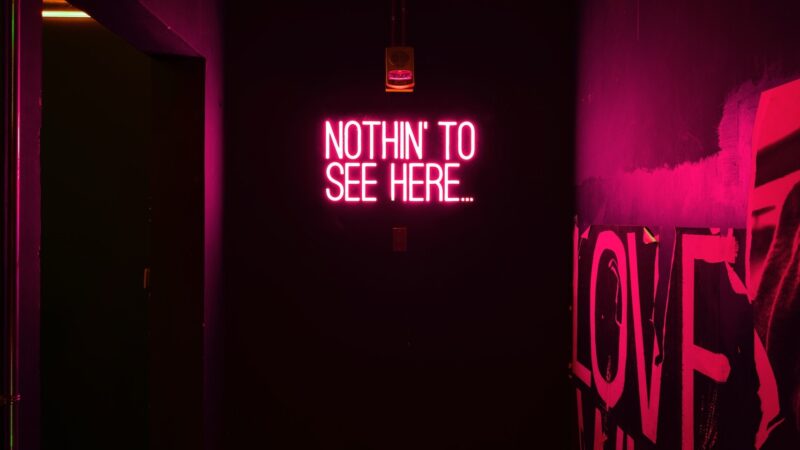
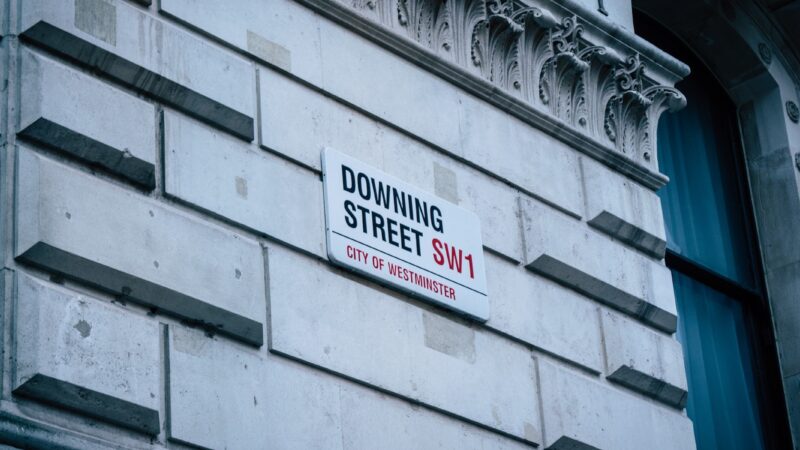
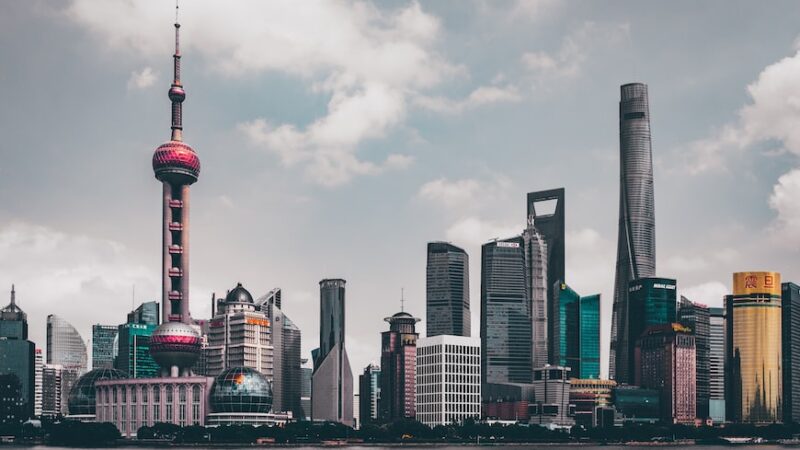


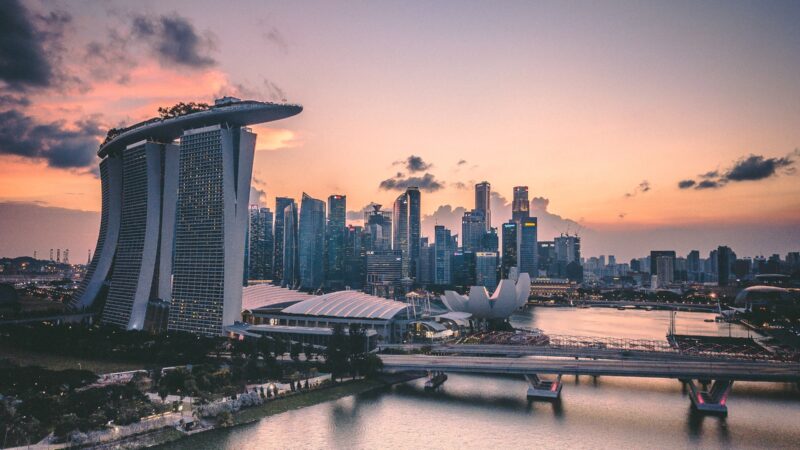
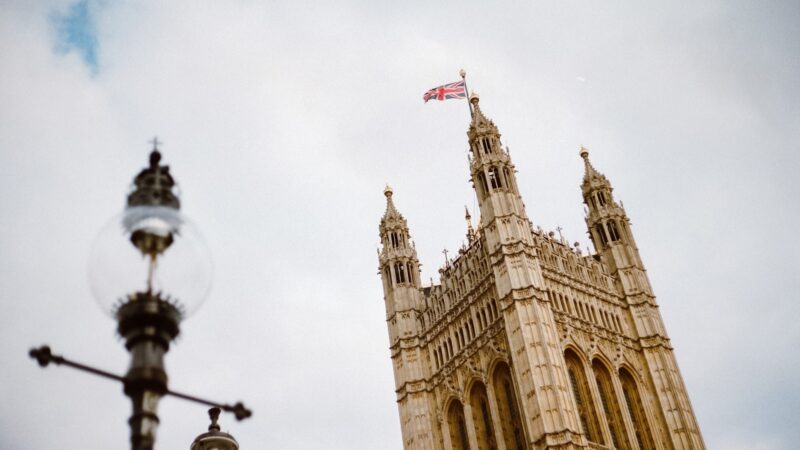

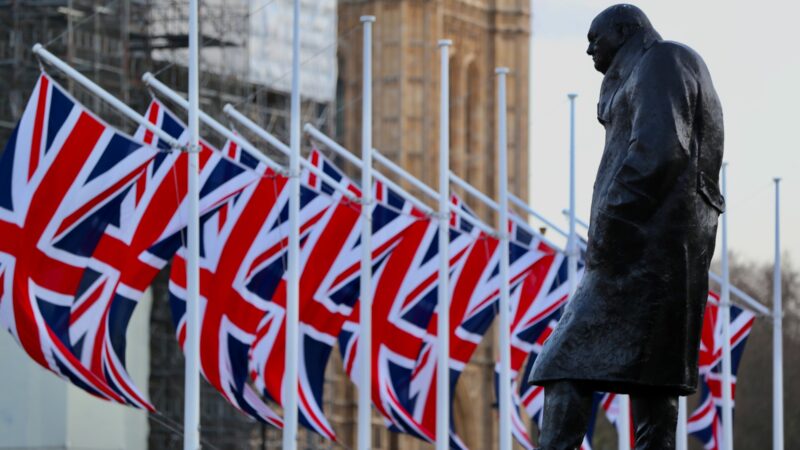
Every Field and Hedgerow?
For several years now, we’ve been told the British political class is solely concerned with the pursuit of wealth, choosing to prioritise GDP above every other consideration. We’ve been told immigration is in our nation’s interest because it grows the economy, the dissolution of the nuclear family is necessary to boost productivity, and MPs are itching to pave over Every Field and Hedgerow with soulless newbuilds, concrete monoliths, and glass skyscrapers.
It is true that mass immigration is an irremovable component of Britain’s post-war political orthodoxy, one which is continuously propagated by supposedly serious economists and journalists. Even people considered economic radicals by the political mainstream, such as former Prime Minister Liz Truss, wanted to significantly increase immigration during her historically short period in office, making her popularity with the Conservative grassroots, and even sections of the anti-Tory right, all the more bizarre.
Next to Net Zero – a loose amalgamation of targets and reforms to overhaul consumption habits to lower Britain’s carbon emissions, especially in large cities – the UK government’s flagship policy has been Levelling Up – a loose amalgamation of targets and reforms intended to grow the national economy, especially regional economies outside of London.
However, this perspective has experienced pushback in recent years. Specifically, it is increasingly argued the establishment’s support for immigration is moralistic as well as economic, with a hegemonic left-wing sensibility playing a more important role than any technocratic justification.
Likewise, there is truth to this perspective. After all, it is an observable fact that Britain’s economy is stagnant, and no less than 30 years of mass immigration hasn’t made a discernibly positive impact on our national economy, leading to the suppression of wage growth for those on lower incomes and giving monopolists a steady supply of cheap labour.
If Britain’s political class were narrowly obsessed with prosperity, wages wouldn’t be flatlining, productivity wouldn’t be at a standstill, and basic necessities wouldn’t be borderline unaffordable to many. Therefore, it is concluded by some that Britain’s political class is not obsessed with economic growth, but seemingly indifferent to it, with swathes of the establishment showing considerable sympathy for the aspirations of the Degrowth movement.
Herein lies a contradiction which I have yet to see addressed: if the political class cannot be characterised as growth-obsessed due to Britain’s worsening economic conditions, how can they be characterised as eco-paranoid zealots if our environment also continues to worsen?
Given a cursory glance, the British establishment is staunchly committed to the natural world. Environmental organisations can sue the government over its self-imposed obligation to achieve Net Zero by 2050, the planning system prevents power lines being built in an energy crisis, and ULEZ expansion has been implemented, despite its intense unpopularity with the affected communities; a move which has activated several little platoons of anti-surveillance activists, who are shown no quarter by the police, unlike the eco-activists who block roads and vandalise artistic masterpieces with impunity.
Based on these facts, one would assume Britain’s environment is in pretty good shape, that whatever problems we may be facing, Britain’s wildlife is more than protected from harm. However, we needn’t assume anything – the results of our leaders’ ‘efforts’ lie before us and they’re far from satisfactory.
Britain’s stringent, cack-handed regulation of development hasn’t resulted in a safer or richer environment. On the contrary, much of our wildlife remains on the brink of extinction, the quality of our water is some of the worst in Europe, various forms of animal cruelty go unpunished, and conservation organizations routinely deviate from their stated purpose.
Considerable ire is directed towards the localist cadres and uppity bureaucrats who obstruct housing developments in the name of protecting hedgehogs, yet little-to-no attention is directed by right-leaning wonks and commentators towards the significant decline in Britain’s hedgehog population. Sad!
We can debate the sincerity of the NIMBYs’ convictions all day, what matters is the hedgehog population is declining and the sooner a solution to this environmental problem can be incorporated into a radical political agenda, the less we will have to pedantically scrutinize the intent of others. I needn’t labour to ‘prove’ that rewilding is a Blairite psy-op or a Gnostic conspiracy. If I accept the definitive principle is good, I am free to support it in to whatever form or extent I choose, and why shouldn’t we rewild Britain?
It is the height of Metropolitan liberal hypocrisy that Alastair Campbell can walk to and from his recording studio without being stalked by a hungry lion. Indeed, the life of every failed statesman-turned-podcaster is worthless compared to the life of a happily rewilded beaver.
This said, we mustn’t satisfy ourselves with half-measures. It goes without saying that rewilding beavers into unacceptably dingy water is like selling a rat-infested apartment to a young couple. Just as trains are viewed as a symbol of progress, water is a symbol of life itself, and any political movement which can portray itself as taking on corrupt monopolists and their spree of sewage dumping will be popularly received by literally every section of British society, especially when the damage of such dumping threatens to increase water prices in an already uncomfortable economy.
Contrary to what some claim, dumping raw sewage, molten slag and microplastics over a raft of otters without second thought doesn’t make you a progressive Victorian industrialist, it means you’re spiritually Azerbaijani. Bee bricks aren’t a well-informed method of helping bees, but the idea is more good-natured than relishing a sense of superiority derived from conscious indifference.
Since leaving the EU, Britain is no longer beholden to its rule of unanimity. As such, it is within Parliament’s immediate and sovereign power to crack down on live imports/exports, vivisection, and battery farming, yet it has not done so. The government banned American Bully XLs after a brief online campaign yet shelved legislation to prevent an obviously cruel and unnecessary practice, one which exists solely to benefit the bottom-line of multinational corporations, run by who think they can treat animals as inanimate property.
The idea Britons must subsist on cheap and nasty processed slop from overseas is a bare-faced lie. Politicians, wonks, and commentators are waking up to what we nationalists have been saying for years – outsourcing energy production is politically stupid. If they can understand that gutting your domestic capacity for energy production doesn’t necessarily make it cheaper or more secure, they should learn to accept the same logic applies to food production as well.
After all, food prices aren’t rising because of “Anglo sentimentalism” or anti-cruelty laws. On the contrary, food prices are rising despite Britain’s laissez-faire approach towards such practices. Indeed, if prices correlated at all with Britain’s love of animals, prices would be way higher than they are currently!
This is because “Anglo sentimentalism” is the most powerful force in the world. Britons collectively donate tens of millions to The Donkey Sanctuary on an annual basis, money which could fund a private military to topple the government, yet few in our circles see this as a power worth harnessing. Consequently, those who have managed to harness this power are using it to ride roughshod over everything the average patriotic Englishman holds dear.
The National Trust, which markets itself as a conservative membership-based organization dedicated to repairing manor houses and protecting historic woodlands, spends its time and resources promoting Gay Race Communism. There are efforts within the National Trust to steer the trust in a more conservative direction, and I’m sure a few of our guys could lend them a helping hand in one form or another. That’s certainly preferable to dismissing the mission of custodianship altogether.
When environmentalists say Britain is in crisis, they’re unironically correct. When the Anglo sees global pollution erasing Britain’s native species, he sees the erasure of himself. Just as his philosophy of life is held together by a pearl of poetry, his existence is held together by a drop of sentiment; one which tells him that to be has an inherent value. This sentiment has birthed his capacity for entrepreneurism and his love for emerald pastures; it has given him cause for confidence in his own self-worth and an eagerness to apply himself to something greater than the merely and immediately convenient, doing so without a hint of contradiction, despite those who accuse him of being an intrinsically anti-intellectual creature.
Our leaders may not be ruthless mammonists, but they’re not unyielding naturalists either, and their record is more than sufficient proof. Beneath their apparent gormlessness, their way of thinking about matters of great importance is foreign to the average Briton, and the sooner this fact is realised by would-be reformers of the British state, the better.
Photo Credit.